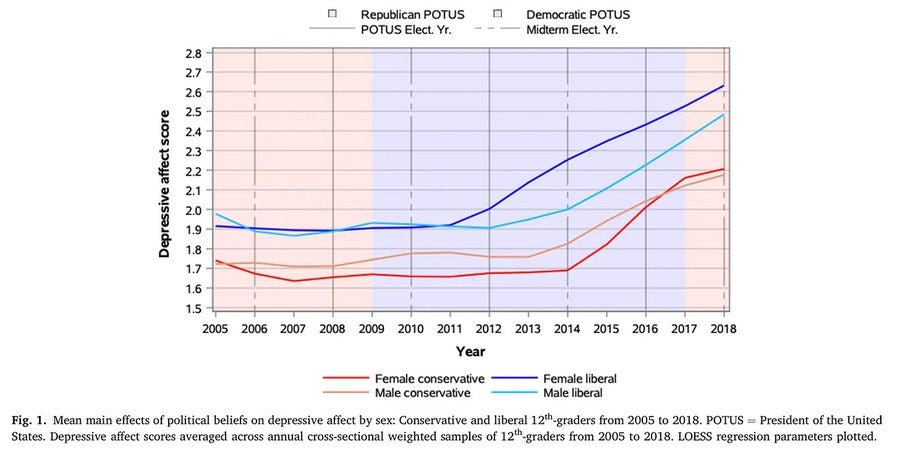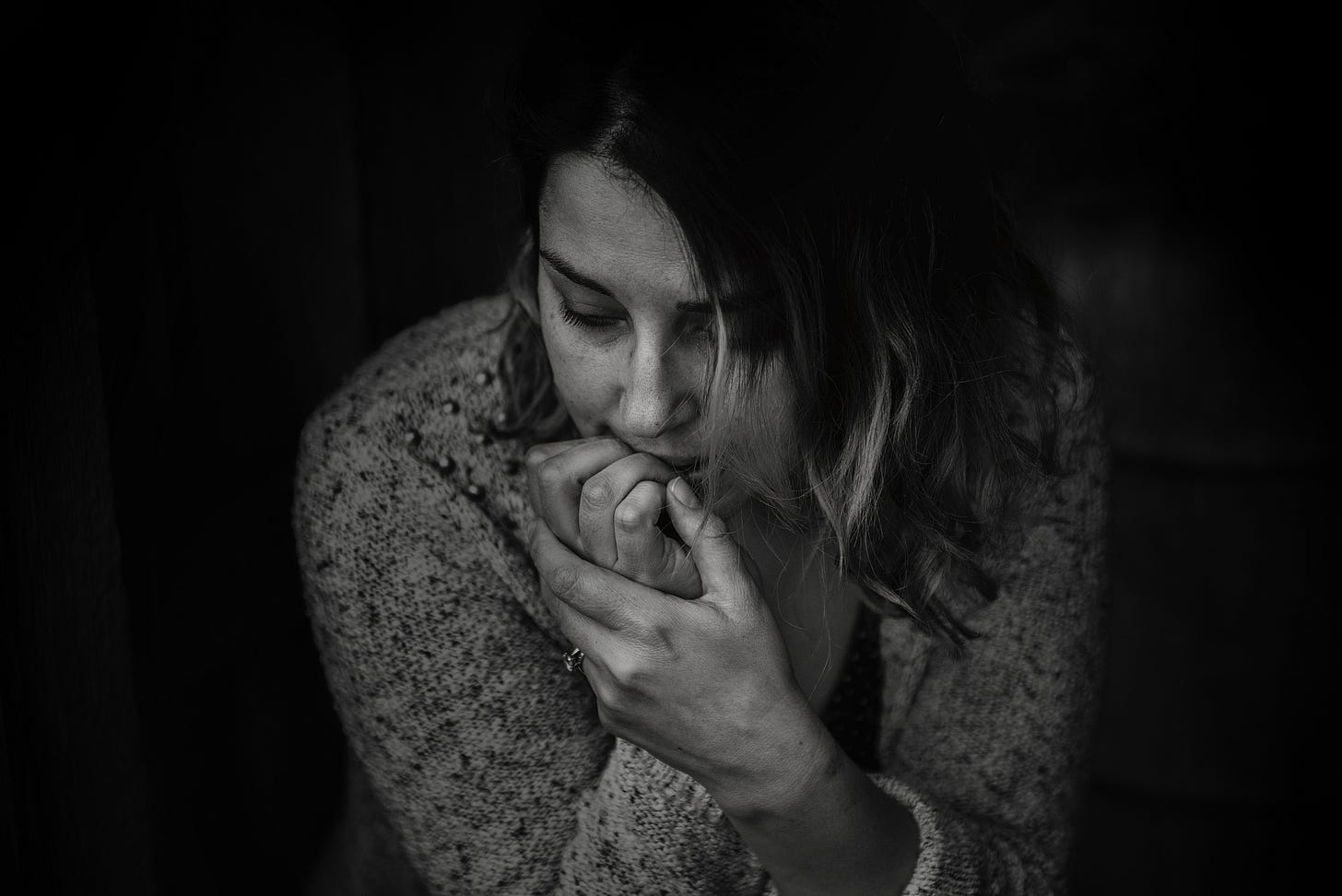The CDC data on rising depression among young people has been making its rounds. One aspect that writers have honed in on, at least those who I read, is that 12th graders who identify as politically liberal have the highest rates of depression, with female liberal rates higher than male liberal rates. From 2005 to 2011, female rates were in line with liberal males, but they started to rise above their male counterparts in 2011.

Although the chart is not broken down by race, the findings are similar to a March 2020 survey done by Pew which found that white liberal females, compared with white moderate and white conservative women and white men, were most likely to report that a healthcare provider has told them they have a mental health condition, such as depression.

There could be a variety of reasons for the rising rates of depression among young people in general, and for liberals in particular, such as social media and the catastrophizing of political events, to name a couple. But there seems to be a correlation between those who identify with left-leaning politics—not moderates, but progressives, if you will—and the likelihood of depression. In other words, I wonder, which came first: The chicken? Or the egg? Do depressive people feel more at home among political progressives, or do progressive politics lead to an increase in depressive affect?
The latter seems right to me. I know many progressives who lead with their heart and feel quite depressed, even if not clinically, about the state of the world and what they view as the lack of care among political and cultural institutions. They are big-government people who advocate for policies that will intervene to improve people's lives. They are the empaths who worry day after day about human suffering. This is not to say that moderates and conservatives don't empathize with those who suffer, they just view the causes and solutions differently, which might have a bearing on how they internalize events in society.
I suspect that the young liberals who are experiencing higher rates of depression are reading and listening to catastrophizing messages from politicians, celebrities, and their peers, and that they are also getting these messages in schools from their teachers, most of which are likely female (and white). The extent to which modern politics has entered the classroom is likely overstated—just another example of catastrophizing. But there does seem to be reason to believe that school environments contribute to the sense of hopelessness among teenagers.
The teaching force does lean liberal, especially in urban areas, and if progressive educators feel a sense despair about the world, there is a good chance they are expressing those feelings, whether intentionally or not, while at work. Even if teachers are not verbalizing their political views, how they behave toward their students could contribute to raising rates of depression.
How a teacher talks about adulthood and the expectations that come with being an adult, for example, can impact their students' attitude. I worked in high crime, high poverty neighborhoods in Chicago (well before the current Great Awokening) when I was a teacher and there were typically two camps of teachers with two different approaches when mentoring students: One camp who coddled students because the world outside of school is challenging so they wanted to make school a comfortable place to be, devoid of obstacles, and the other camp who maintained high expectations because the world outside is challenging and isn't going to cater to the students so they needed to be prepared to handle adversity. The former camp viewed students as victims needing protection, the latter viewed them as independent agents in charge of their own lives. And of course, there were educators who fell somewhere between these two camps.
Now, image that students hear the victim narrative, or other resentment-inspired talking points of progressive politics, at school and at home, whether about themselves or other youth. In other words, they have progressive parents and progressive teachers who see catastrophe all around them and speak of it often, or simply embody a doom and gloom demeanor. Considering young people tend to take up the politics of their parents, there would be no surprise at seeing rising rates of depression among these youth. Not just because of their parents and their teachers, but because they are absorbing the politics of these adults on top of what they see and hear while on social media.
I don't currently work in a school, so I could be wrong about all of this. However, if youth are inundated with the negativity of modern progressive politics at home, online, and in school, and they identify with the political left, their rising rates of depression make even more sense.




